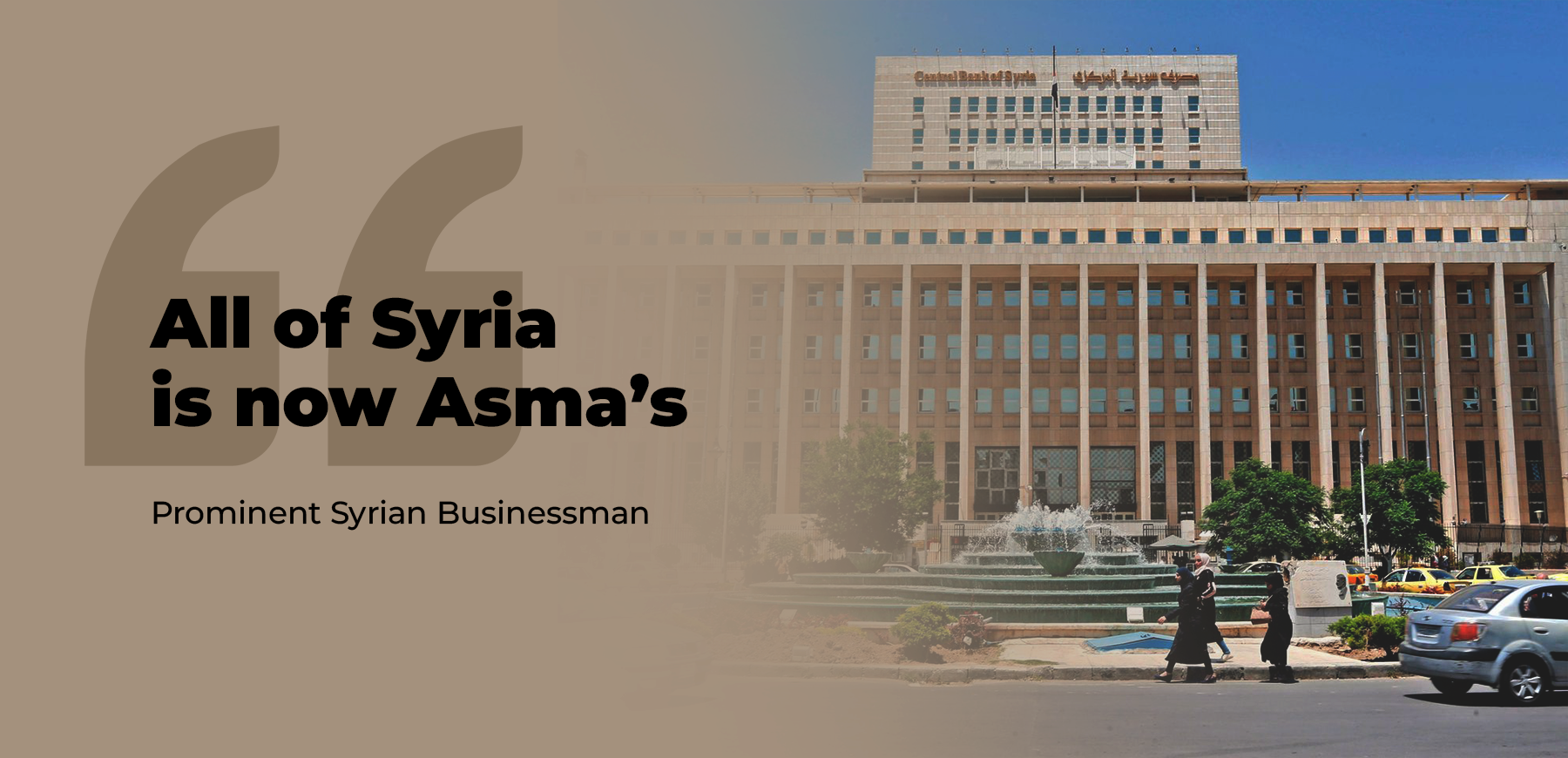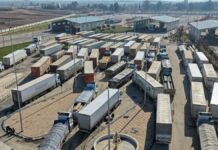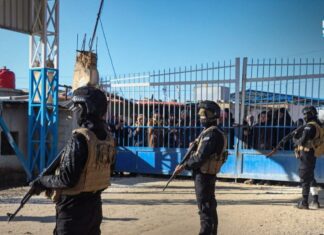
Syria’s economy is on the brink of utter collapse, battered by years of conflict, debts to regime benefactors, Western sanctions, and Lebanon’s financial implosion—a crucial sanctuary for Syrian businessmen. Despite this turmoil, the remnants of the economy are controlled by Bashar al-Assad, his wife Asma, and his brother Maher. The Assads have decimated Syria’s traditional merchant class, creating new avenues to profit from the ongoing war.
Once a growing and somewhat stable part of the Middle Eastern landscape, the Syrian economy has been driven to ruin. This decline is not merely the result of devastating years of war but due to the corrupt and exploitative policies of the Assad regime. At the heart of this systemic economic devastation is the Assad family’s inner circle, with Asma, playing a pivotal role.
A Family Affair
For decades, the Assad family has exploited Syria’s wealth and resources, enriching themselves while the nation suffers. From the first days of Hafez al-Assad to today, the family, under Bashar and his cousin Rami Makhlouf, has controlled significant portions of Syria’s economy through a network of companies and monopolies.
Qutaiba Idlibi, a senior fellow with the Atlantic Council’s Rafik Hariri Center, spoke with L24, “On the overall impact of the Assad regime on the Syrian economy, there are a couple of factors to consider. Both Hafez and Bashar Al-Assad had an irreversible impact on Syria’s overall economy. All economic reform projects were hindered by high levels of corruption linked to the Assad family and their supporters. Their foreign policies and adventurism outside Syria, especially in Lebanon, had its impact on Syria’s foreign reserves and its economy’s ability to integrate within emerging markets in the region and abroad.”
Idlibi posits, Hafez al-Assad’s cabinets lacked expertise, leading to a heavy reliance on oil revenue. “Hafez didn’t have good expertise in his different cabinets,” he explained. In contrast, Bashar surrounded himself with more capable economists to diversify Syria’s economy. However, this approach had significant drawbacks. “His approach to liberalize the economy, combined with his complete crackdown on civil society, including charity, contributed to the economic collapse in the agriculture sector which fueled the uprising in 2011.” Bashar’s policies ultimately exacerbated the country’s economic woes, setting the stage for the conflicts to come.

“What added salt to the injury under Bashar,” he emphasized, “is his greed in trying to enrich his family through tapping into different sectors of the private sector. In 2010, Rami Makhlouf was estimated to control or partner in over 60% of Syria’s economy.”
The years of war, corruption, and mismanagement took their toll, the regime’s substantial debt to Russia and Iran, coupled with hemorrhaging cash to fund military operations, public sector payrolls, subsidies, and Lebanon’s financial crisis, wiped out many Syrians’ savings. By December 2019, the Syrian currency had lost over 95% of its prewar value against the dollar, impoverishing vast segments of the population.
Revolution Within the Revolution
At the height of 2019’s economic crisis the regime, headed by Asma began to launch an economic revolution, upending decades-long norms when the regime began a “mafia-like” campaign to extort the business elite, including those who had supported them throughout the war. Asset seizures became commonplace. For some, the regime used legal pretexts to impose hefty fines, claiming violations like overlooked back taxes or customs infractions. One businessman recounted to the Financial Times that he was detained by security forces and given an ultimatum: pay a large sum or remain in jail indefinitely. Funds collected this way bypass official tax accounts, often going directly to accounts controlled by the presidential palace for the Assads’ patronage and personal enrichment.
The regime which systematically looted state resources, creating an economic structure benefiting only the elite, had turned on those it once protected. Makhlouf faces ongoing threats of asset seizures and demands of millions of dollars in fines, while other Alawite and Assad cronies, have fallen prey to the predatory practices of the rapacious and ravenous regime and were “ransomed” for hundreds of millions by the regime in a 2023 “shakedown.” The change to the status quo has not gone unnoticed as one of the affected Alawite businessman said, “We didn’t go through all of this, to land Syria in the hands of a Sunni woman.”

The old system of corruption in Syria was being upended by Asma al-Assad. Jihad Yazigi, a Syrian journalist and analyst specializing in Syrian economic affairs, explained to L24 that corruption in Syria is essentially “stealing in a ‘practical’ manner,” used to exploit the system to control the state. This form of corruption involves monopolizing sectors and awarding contracts to private companies owned by regime insiders. “Pressure on the private sector is also prevalent,” Yazigi noted, ensuring that regime affiliates have shares in various companies. This severely impacts the Syrian economy, limiting competition, hindering investment, and significantly increasing the costs of various sectors and services.
The Economics of War
War has only exacerbated these destructive practices. The regime has turned the conflict into an opportunity for further enrichment through a war economy. Humanitarian aid and reconstruction funds, meant to alleviate suffering, have been diverted to regime coffers. The Observatory of Political and Economic Networks (OPEN) and Syrian Legal Development Program (SLDP) authored reports indicating that a significant portion of international aid ends up in the hands of regime-affiliated companies, with little reaching those in need.
Moreover, the Assad regime has delved into illicit activities to fund its war efforts. The narcotics trade, particularly the production and trafficking of Captagon, has become a major revenue stream for the Assad family. This drug trade, says the Organized Crime and Corruption Reporting Project (OCCRP), not only finances the regime but also fuels instability in the region.

“Regarding the role of the presidential institution and Assad’s family in defining economic policies,” Yazigi continues, “there is no doubt that the presidential institution has played a significant role in the Syrian economy. Before the revolution, the regime had privileges associated with the Assad family, but it was relatively widespread. The economic wealth is now monopolized to such an extent that only a few individuals control it. Practically Bashar and Asma. Previously, there were other parties involved, but now, it’s mainly Bashar and his associates.”
Asma al-Assad
Asma, a former JP Morgan banker, now stands at the apex of Syria’s economic hierarchy. At the head of the regime’s clandestine economic council, Asma wields immense power over the Syrian economy. Through her NGOs, she has built a vast patronage network, controlling the flow of international aid and further consolidating the Assad family’s wealth and influence as documented by groups like the Syrian Network for Human Rights (SNHR).
The First Lady has emerged as a significant player in the regime’s political and economic strategy. With a manufactured and maintained image as a sympathetic philanthropist through her Syria Trust for Development (STD). The foundation, ostensibly focused on social development, has been implicated in diverting aid and resources to regime-controlled areas and entities.
The STD network includes subsidiaries involved in various sectors, from legal aid to cultural heritage. Its work has frequently raised concerns, particularly regarding its role in providing aid and protection to those displaced by the regime. Critics argue that it is unfathomable for Asma’s charity to claim to offer protection and support to people victimized by her husband’s regime.

The NGO has become a cornerstone of the regime’s humanitarian aid manipulation. From the onset of the war, NGOs operating in Syria had to engage with Asma’s network, often meeting in her office at the presidential palace to negotiate contracts. Aid groups are required to partner with government-affiliated entities like the Syrian Arab Red Crescent and the Syria Trust, which were key players in distributing international aid after the recent earthquakes.
A large amount of her aptitude, said Idlibi, lies in her adaptability, “Before the uprising, she helped the Assad family diversify their assets and hide their money abroad using her connections and expertise in the financial sector, and she has been very successful in doing so. Asma became influential in helping Assad tap into new resources. She led the process of confiscating assets and resources of members of the family who extended beyond their means like Makhlouf, Shalish, and others.”
The Devil’s Due
The corrosive effects of corruption and exploitation have not only devastated Syria’s economy but inflicted untold suffering on its people. The Assads’ economic rivals have been marginalized, with many of their assets seized. Asma now controls Makhlouf’s charity and its extensive Alawite patronage network. This consolidation of power and wealth under Asma and her close associates shows the regime’s relentless pursuit of dominance and enrichment. Asma’s role in this economic dictatorship is emblematic of the Assad regime’s financial consolidation. A Syrian businessman commented to the Financial Times about the situation lamenting: “All of Syria is now Asma’s.”








